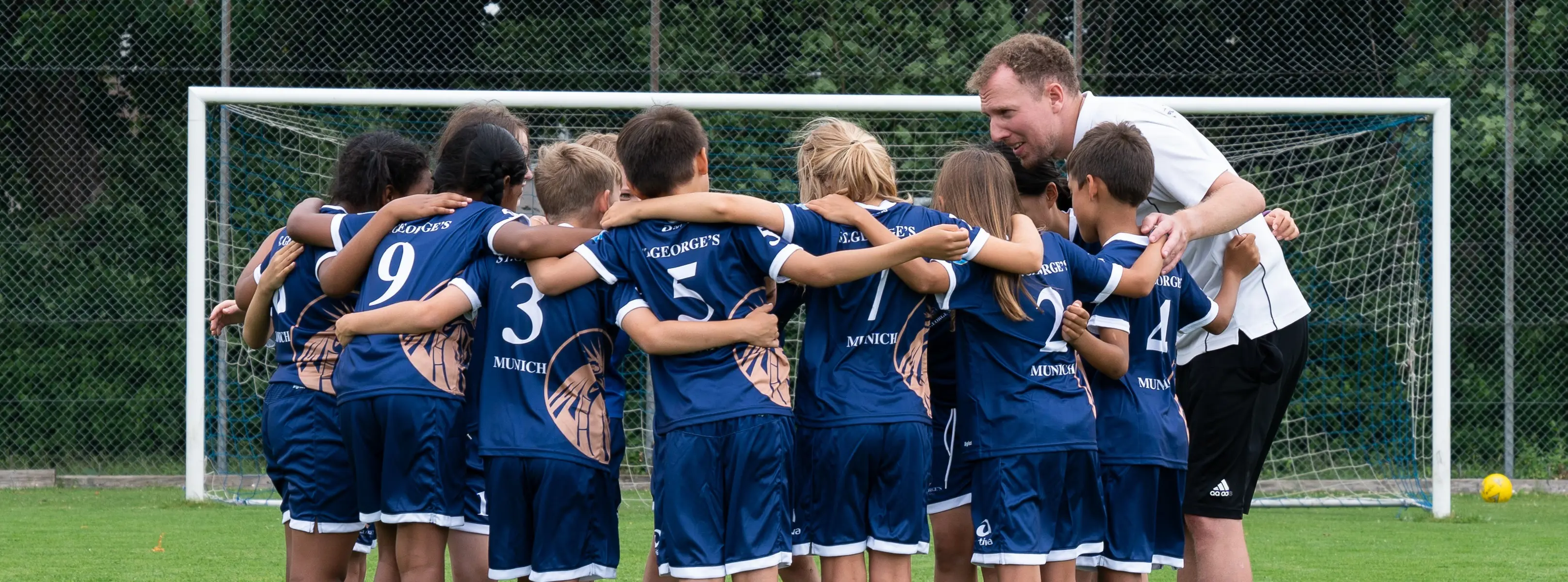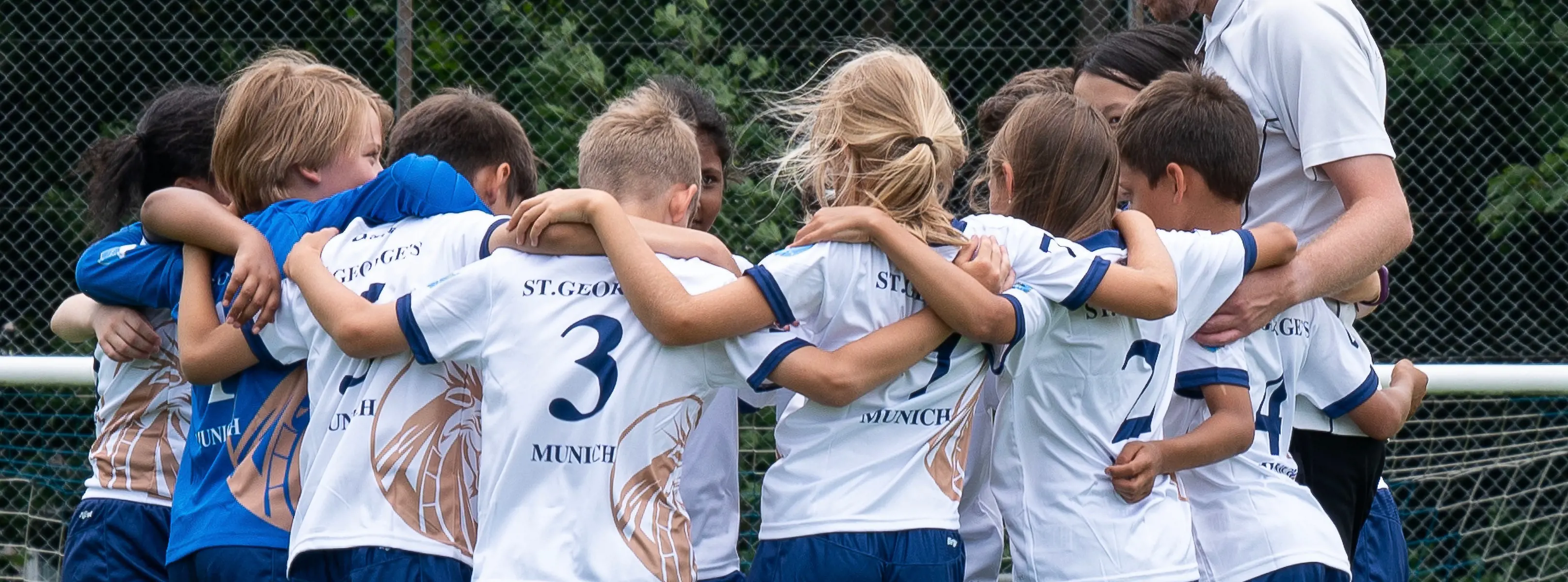Our people define who we are
The St.George’s School Group sustains a long-term strategy to deliver an extraordinary chapter in a lifetime of learning that offers purpose in the present and relevance for the future.
- Purpose
- Proprietors
- Governing bodies
- The Supervisory Board
- The Executive Board
- School Directors
- Group development meeting
- Conflicts of interest
- Parental involvement
- Code of conduct
- Financing
- External regulation & accreditation
Purpose
Our people define who we are. Our governance establishes the criteria and guidelines that govern the organisation and function of the St.George’s School Group, as well as its constituent schools and companies. It mirrors our aspiration to act with the utmost professional expertise and ethics and is a reference to the values, the culture and principles which guide the work of all the people who represent St.George’s School.
The governance provides information on the Group’s structure and sets out the expectations, scope and limits of responsibilities of individuals and bodies within the organisation, with a constant striving to fulfil our vision and mission.
The Board is confident that the Group’s governance and structure reinforces its ability to deliver the Group’s ambition of growing value for individuals and society over the long term. They recognise their duty to preserve and promote the Founder’s values and objectives.
Proprietors
Each school authority and each school in the St.George’s School Group is legally incorporated as a company. These companies are in the legal ownership of the proprietors.
Governing bodies
The main governing bodies are the Supervisory Board, which determines strategic priorities, and the Executive Board, which implements the Group’s strategy.
The priority objectives of the main governing bodies are to ensure the School Group's long-term viability and stability and it’s consistent and reliable quality education and to defend its social interest; all while upholding the corporate values across the organisation and making a positive impact.
Its principal missions are to adopt the major strategies of the company and the Group, monitor the implementation of those strategies, verify the fair and accurate presentation of information about the company and the Group, and protect its corporate assets.
The Supervisory Board
The Supervisory Board of St.George’s Schools is appointed by the proprietors. It is made up of members with a broad, diverse range of experience and expertise.
The Supervisory Board is responsible for the overall strategic direction of the Group and the appointment of the senior management (at group level and at school level).
In addition, it is responsible for:
- Discussing at regular intervals the Company's business development and the Executive Board's planning and strategy
- Advising, motivating and guiding the Executive Board and supervising their policies and the general affairs of the company and its businesses, taking into account the relevant interests of the company's stakeholders
- Establishing financial controls and appropriate procedures for risk management as well as the overall supervision of the business
- Acting as the ultimate guardian of the organisation’s mission, vision and values
- Acting as a governing body for the schools, separately from the day-to-day operational leadership
- Guarding the financial, educational, safeguarding and employment health of the organisation
- Leading the overarching strategic plan to form the basis for the School Development Plans
- Evaluating its own work and effectiveness, as well as that of the Executive Board
- Ensuring that sustainable and social responsibility play an appropriate role in the organisation’s strategic direction
- Acting as a critical friend to the school and group leadership teams
- Establishing the high-level structure of the organisation
- Hiring and setting compensation for the senior staff within the organisation, including School Directors
The Chair of the Supervisory Board is responsible for leading it in achieving this role.
The Supervisory Board delegates responsibilities to the Executive Board and School Directors. Under no circumstances will a Supervisory Board Member be a leader at a constituent school.
All Supervisory Board Members are expected to meet the same requirements as employees to demonstrate suitability to work with children, including regular training in relation to safeguarding. Those Supervisory Board Members who form part of interview panels are additionally expected to have undergone training in safer recruiting.
One member of the Supervisory Board will be identified as having a particular responsibility for safeguarding across the school group. They will:
- Receive a higher level of safeguarding training
- Meet with the Designated Safeguarding Lead of each school at least once per term
- Report to the Supervisory Board regarding any significant child protection outcomes
- They will ensure that the Supervisory Board has an overview of the health and safety of students and staff
The proprietors will periodically review and, where appropriate, refresh the membership of the Supervisory Board. In doing this, they will seek to ensure that the Supervisory Board:
- Draws in different aspects of expertise pertinent to a school, including operations, human resources, finance, marketing and education
- Represents the nature of the community that the schools serve
- Reflects best practice in equity, diversity and inclusion, in particular in relation to age and gender
The Executive Board
The Executive Board of St.George’s Schools is appointed by the Supervisory Board. The Supervisory Board will periodically review and, where appropriate, refresh the membership of the Executive Board.
The Executive Board, is comprised of executive, operational and functional directors, defines strategic objectives based on the orientations decided by the Supervisory Board, coordinates their implementation, ensures that the organisation adapts to changes in the business environment, and oversees both the definition and the accomplishment of the responsibilities and delegations of authority of Executive Management.
The Executive Board provides strategic leadership to the School Directors and senior managers with central group functions.
The current positions on the Executive Board are:
- Chief Operations Officer
- Chief Finance Officer
- Chief Human Resources Officer
- Chief Marketing Officer
School Directors
St.George’s aim is to foster the development of each of its schools while preserving their distinctive heritage, character, and governance. Our schools remain true to their own pioneering spirits, while receiving the resources, guidance and support they need to design and offer the finest curricular and extra-curricular experiences.
The School Director is the headteacher of the respective school within the St.George’s School Group.
Each School Director is expected to provide whole-school leadership, and in particular:
- Oversee the day-to-day operations of the school
- Take the lead role in implementing the school’s vision and mission
- Provide leadership, direction and co-ordination within the school
- Develop and maintain effective educational programmes within their school and promote the improvement of teaching and learning with their school
- Foster an open, transparent and equitable culture
- Lead whole-school improvement initiatives and the school development plan
- Inspire, challenge, motivate and empower colleagues and students to achieve their potential
- Promote and celebrate excellence and challenge poor performance across the school
The school director reports directly to the Executive Board and shares a weekly written report on all relevant categories. The human resources, marketing and facility management employees work holistically with their respective school teams, but report to the particular specialist manager in the school group.
The School Director is responsible for handling all complaints or grievances from school staff, parents or pupils in compliance with the relevant policies. These policies outline the appropriate response to circumstances in which it would not be appropriate for the School Director to be personally involved in handling a complaint, grievance or appeal.
Group development meetings
The Group development meeting is the core regular meeting within the organisation’s corporate governance structure. It takes place once per school term. It provides a platform for team members to exchange and align their efforts towards achieving common goals.
It is constituted of all Executive Board Members, all School Directors, the Heads of School and a recording clerk. Other individuals will be invited to provide additional expertise on agenda topics as appropriate. All members of the Supervisory Board are invited to attend the development meeting should they wish to do so.
The purpose of the meeting is to:
- Review the company’s performance against business goals, the annual strategic and action plans (5-year plan) and against the mission and vision
- Adapt the business plan to changing parameters
- Engage in strategic deliberations
- Foster collaboration and open communication for new ideas
- Talk about issues the schools are facing
- Set clear goals and agendas
- Assign actionable tasks and policies for improved performance
Standing agenda items of the group development meeting will include:
- Provision of relevant education
- Declaration of interests
- Safeguarding
- Health and Safety
A member of the executive board will ensure that an agenda is prepared in advance of the meeting, and that appropriate minutes are kept, distributed and stored. The execution of the role is delegated to an entrusted employee that acts as recording clerk.
Conflicts of interest
The Chair of the Supervisory Board maintains a register of conflicts of interest of proprietors, as well as members of the Executive and Supervisory Boards.
The respective individuals are responsible for registering any conflicts of interest accordingly. Interests that have been registered will be managed in line with the Conflicts of Interest Policy.
Parental involvement
Parents will be invited to be active members of the school community. In this capacity, they will help to shape the School’s future direction and ensure a strong connection and sense of community between the School’s leadership and parents: a partnership in which we firmly believe.
The School Director, is the key contact for all parents at the school. Parents can make an appointment with the School Director by contacting the School Office.
The feedback and voices of our community members play an integral role in the School Group responsibilities, and members of the board work diligently to be accessible to their constituents.
Parents are always encouraged to direct questions and complaints at the level most appropriate to their concern. If parents would like to contact the board of the St.George’s School Group, they can do so using the contact form on this website or by telephoning us on +49 2233 808870.
Please note, that a member of administration shall respond on behalf of the board when appropriate.
Code of conduct
The St.George’s codes of conduct reinforce the partnership between the school, staff, students, and the wider community. They serve as a bridge connecting everyone together, ensuring open communication and collaboration and a positive school culture. When clear expectations are established, all members of the community can actively support the school in fostering a nurturing, respectful and safe environment.
All members of the St.George’s School community are expected to demonstrate conduct that is exemplary, consistent and adapted to a global world. St George’s is committed to upholding the values outlined in the school’s vision and values. This code is based on those principles, and its primary aim is to ensure these values are maintained.
This Code of Conduct applies to everyone who represents St.George’s School.
| Code of Conduct for Pupils |
|---|
|
By following the code of conduct, pupils learn valuable life skills such as self-discipline, empathy, and conflict resolution, preparing them to navigate the complexities of the real world. These rules empower students to develop positive character traits and contribute positively to their school community and beyond. The elements have been structured around the four values of St.George’s: curiosity, courage, confidence and community.
|
| Code of Conduct for Employees & Board Members |
|
| Code of Conduct for External Partners |
Our values provide a sound basis for our business. To ensure that St.George’s School remains the trusted partner in the face of evolving expectations from parents and pupils, employees, regulators, and other stakeholders, we rely on a culture that affirms our established beliefs and purpose. This is exactly the spirit we have encapsulated in our Code of Ethics and Business Conduct, and which is also reflected in our internal policies and procedures. |
Financing
As a general international supplementary school (staatlich anerkannte Ergänzungsschule), St.George’s Schools don’t receive any funding from the government. We rely primarily on school fees for the planning, development and operation of the schools and to address evolving facility requirements.
The steady operating results together with conservative financing have ensured financial and operational stability of the St.George’s Schools for the past decades and funded their evolution. It is the Board’s judgment that these forms of funding will continue to be the main sources for financing our high-quality educational programmes and school improvements.
External regulation & accreditation
St.George’s The British International Schools in Cologne, Munich and Düsseldorf Rhein-Ruhr are accredited by the North Rhine-Westphalia and Bavaria State Ministry of Education as a general international supplementary school (staatlich anerkannte Ergänzungsschule).
St.George’s The British International School is also under state supervision by the respective ministries of culture of North Rhine-Westphalia and Bavaria, the district government of Cologne and Düsseldorf, the government of Upper Bavaria, the kindergarten supervision of the city of Cologne, Düsseldorf and Munich, as well as the regional association of the Rhineland for the boarding school.
Additionally, we choose to be authorised by various external bodies in order to continue to achieve our mission and vision. In particular, we enjoy accreditation by the Council of British International Schools, Cambridge Assessment International Education and the International Baccalaureate Organisation.


























